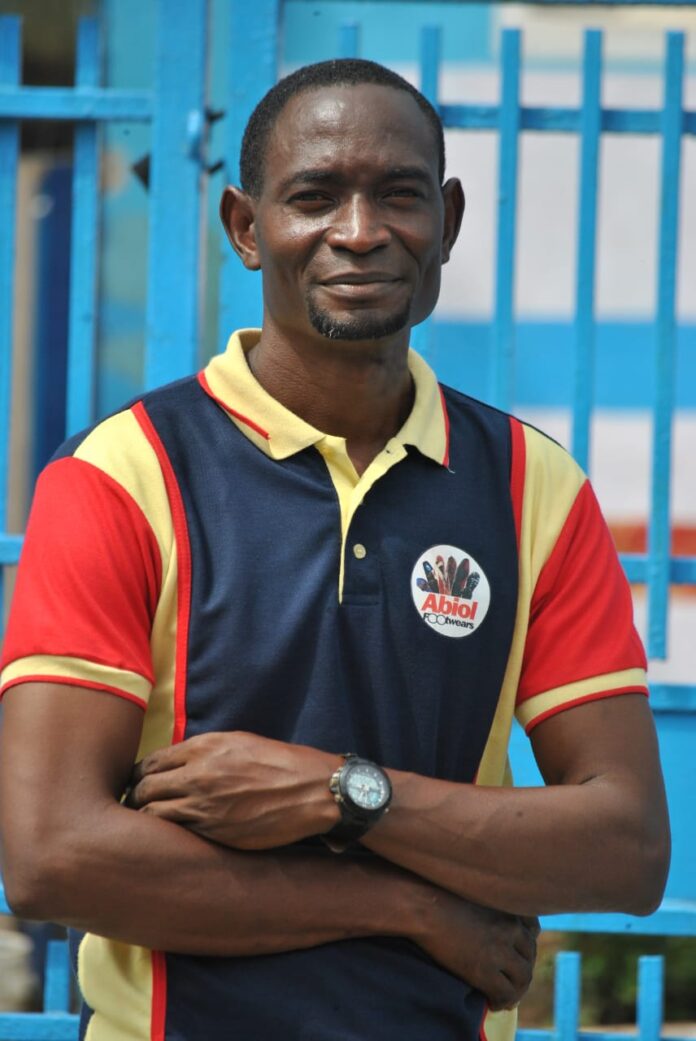From errand boy to CEO, Adepoju’s remarkable journey in footwear artistry
By Ishaya Ibrahim
After completing secondary school in Ibadan in 1996, Adepoju Abiola Ezekiel set his sights on pursuing a law degree at the university. However, the admission process was stalled, leaving his academic aspirations uncertain.
Eager to stay active, he visited his cousin in Lagos to explore job opportunities while still waiting for admission.
The inspiration
Next door to his cousin’s house was a bustling shoemaker’s shop. He would hang out at the shoemaker’s shop. The shoemaker would frequently ask Adepoju to help with small tasks – “Put gum here,” “fetch this,” “bring that,” basically running errands.
Adepoju decided to just learn the shoemaking craft since time was running out without admission. “So, I decided that instead of looking for an admission that hasn’t come, and time is running out, I will just start learning from the shoemaker.”
However, his cousin was strongly opposed to the decision because of the financial implications. “My cousin was worried on how we were going to manage the expenses of feeding and all that. So, I had to return to Ibadan.”
Searching for a teacher
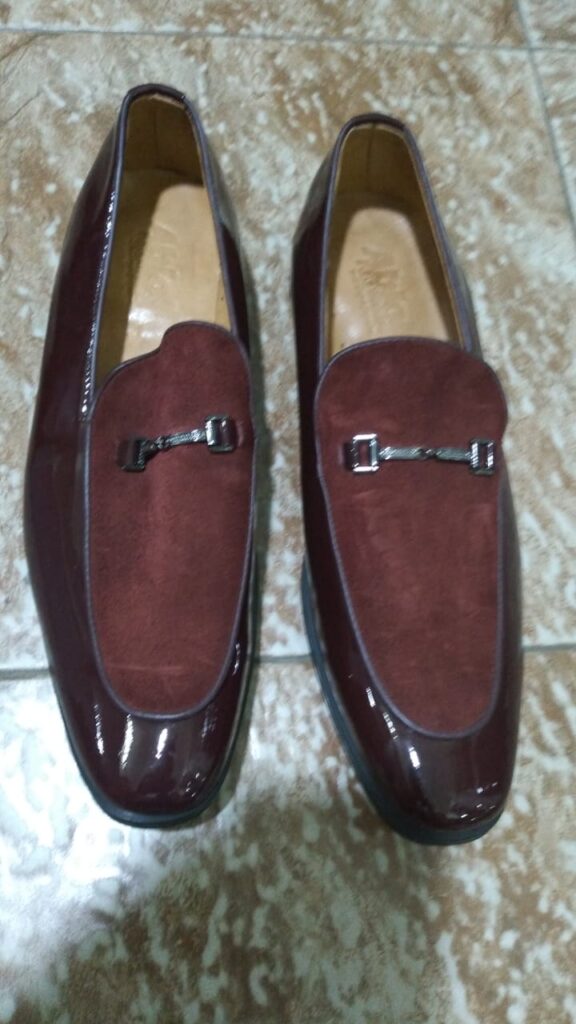
Adepoju’s ideal place to learn shoemaking was Lagos because of the quality of shoemakers around. The Lagos opportunity was however lost because of the financial constraints.
In Ibadan, he decided that the National Directorate of Employment (NDE) would be the next alternative to Lagos shoemakers.
READ ALSO:
TheNiche Young Entrepreneur: Roheemat’s exploits in bag making and creative designs
At NDE, a federal government agency that helps unemployed Nigerians acquire skills to stay relevant, applicants had arrived on the particular day of placements. Most of them chose furniture making, barbing, fashion and design, etc. Only Adepoju and one other person applied to learn shoemaking. The shoemaking class was therefore scrapped because of the limited number of applicants. One of the coordinators, pissed by the decision of Adepoju and the other applicant who chose shoemaking, told them to go and get a carpenter who would build a box which they could hang and move around town like ‘shoe shiners.’
“I wept bitterly because the woman just discouraged me. But when I told one of my friends, he encouraged me that I should just move ahead and do whatever I wanted to do,” Adepoju told TheNiche during an interview at his showroom in the Ogba area of Lagos.
The making of Abiol Footwears
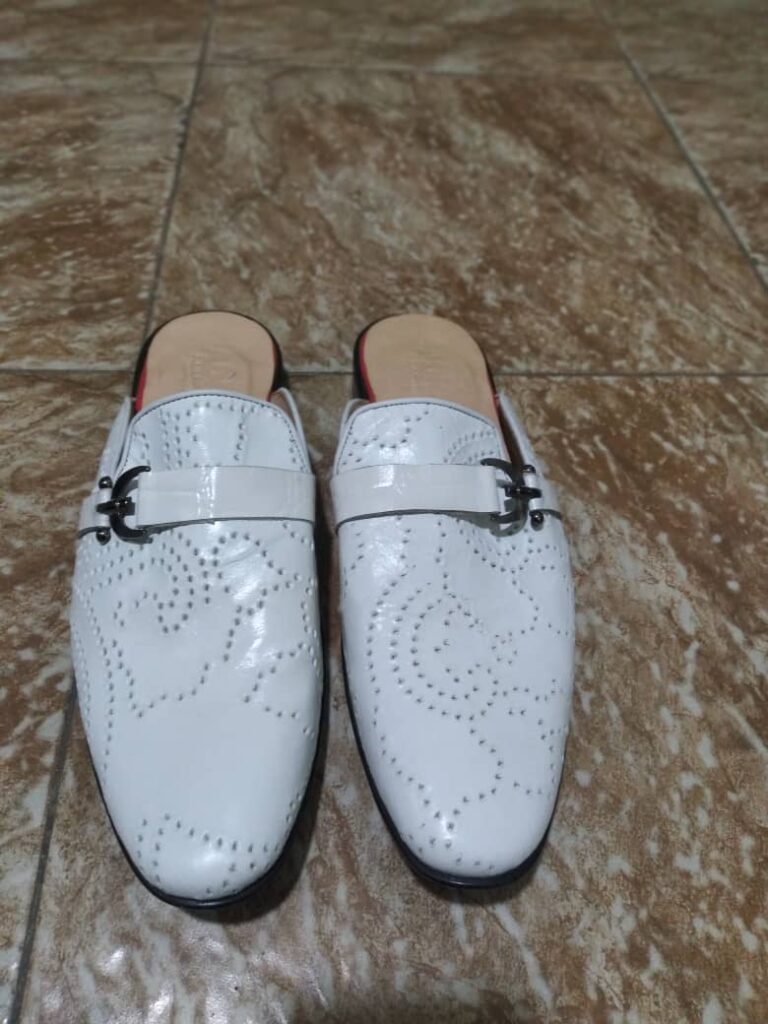
Adepoju later found a place to learn shoemaking for a year and a half. Not satisfied with the depth of the skills acquired, he returned to Lagos in the year 2000 to gather more experience.
Adepoju quickly cultivated the habit of savings from the extra he makes doing little jobs. He said it is the only way to succeed: “If somebody wants to succeed, he must cultivate the habit of saving.”
From his savings and the financial contribution his siblings extended to him, he purchased a container that became his workshop and bought machines and other equipment. Adepoju is now the chief executive officer of Abiol Footwears with a workshop and showroom in the Ogba area of Lagos.
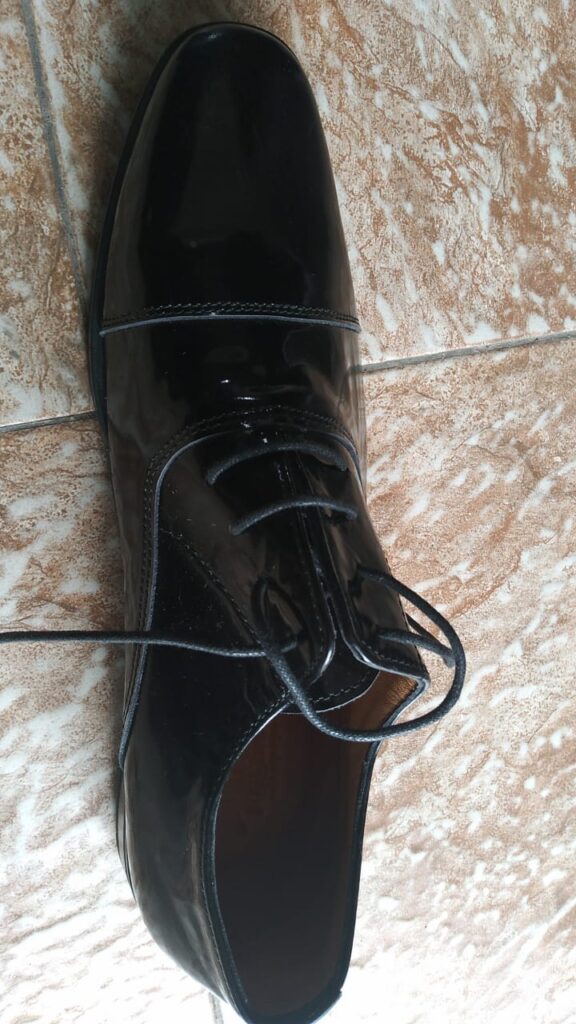
Getting customers
On breaking into the market, Adepoju said it wasn’t so difficult because of the way he had managed previous customers.
He said: “The way you approach your customers matters most. What I learned is to take my customers as my priority. So, once you take your customers as a priority, you get feedback from them. It will help to even know where you need to adjust and make improvements.”
Adepoju said the approach has helped him retain customers who also give him referrals.
Challenges with footwear industry
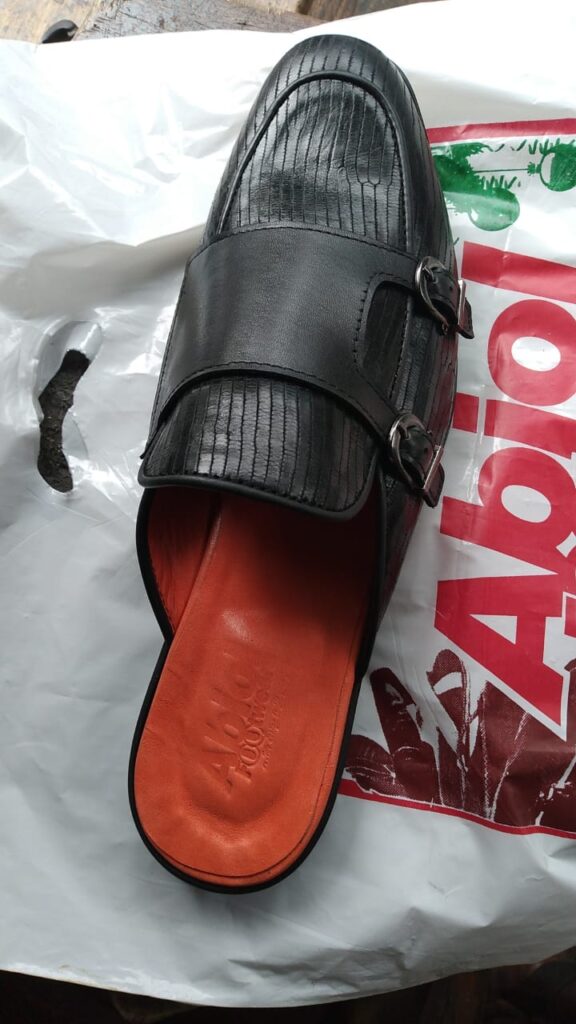
Access to raw materials is threatening the footwear industry in Nigeria, Adepoju lament.
He said: “Most of our materials are not made in Nigeria, like skin, sole, etc. Even though we have the hide and skin, they are taken abroad, processed there and returned to us. So, that’s a very bad business model because we are exporting jobs and importing poverty.”
He added: “Even with that, we still can’t get the materials to buy in large quantity because it’s always scarce. So, the raw material is number one challenge.”
He said poor electricity is another nightmare of the footwear industry. “Our work depends on light. From filing to spraying, just anything you want to do you needs light. And there’s no electricity. We have to run on generator and fuel, which is very expensive.”
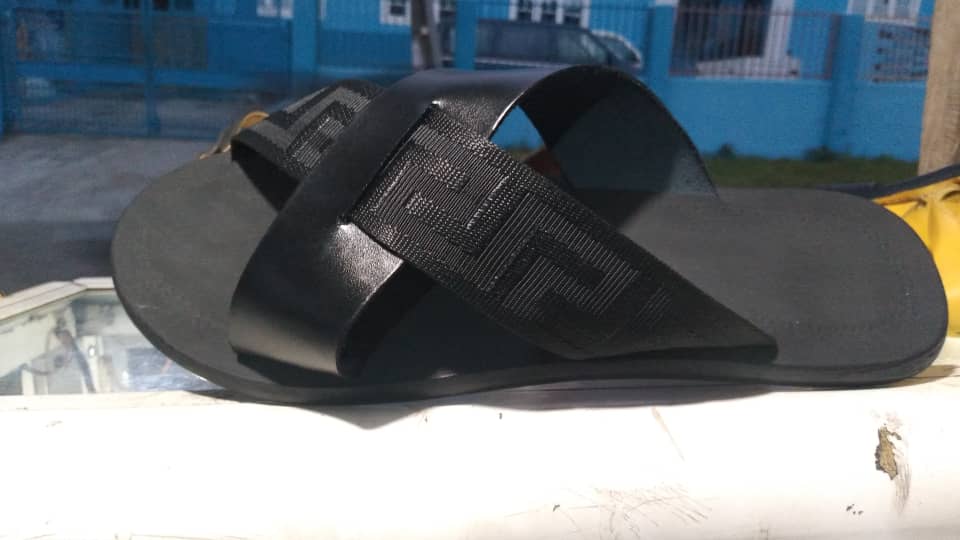
Japa plans?
Adepoju said despite the challenges in the country, Nigeria still offers opportunities for young people to make money.
He said: “Sincerely, everything is in God’s hands. If God said that you will make it in Nigeria, you definitely will make it. Though I’ve said that I will need to travel abroad to learn more because you know countries like Italy, Brazil are some of the best in footwear. So, my interest is just to go and get money there, come back to Nigeria, set up a footwear factory.”
Leading Lagos shoemakers
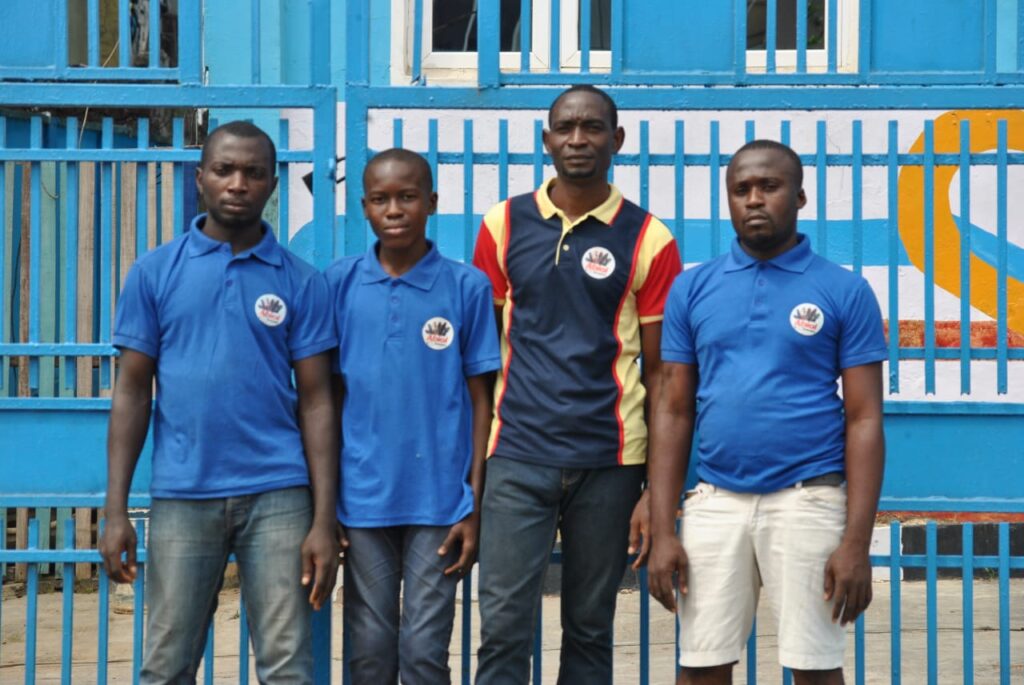
Adepoju was recently elected as president of the Lagos State Shoemakers Association. He had been a member of the association since 2005. He first started as secretary of the association at the zonal level (Oke-Ira zone) to chairman of the zone, then became zonal secretary. From zonal secretary, he became state secretary and now president.
The association, which is affiliated with the Lagos State Ministry of Job Creation and Employment, routinely organises capacity building for artisans and tradesmen in Lagos.

